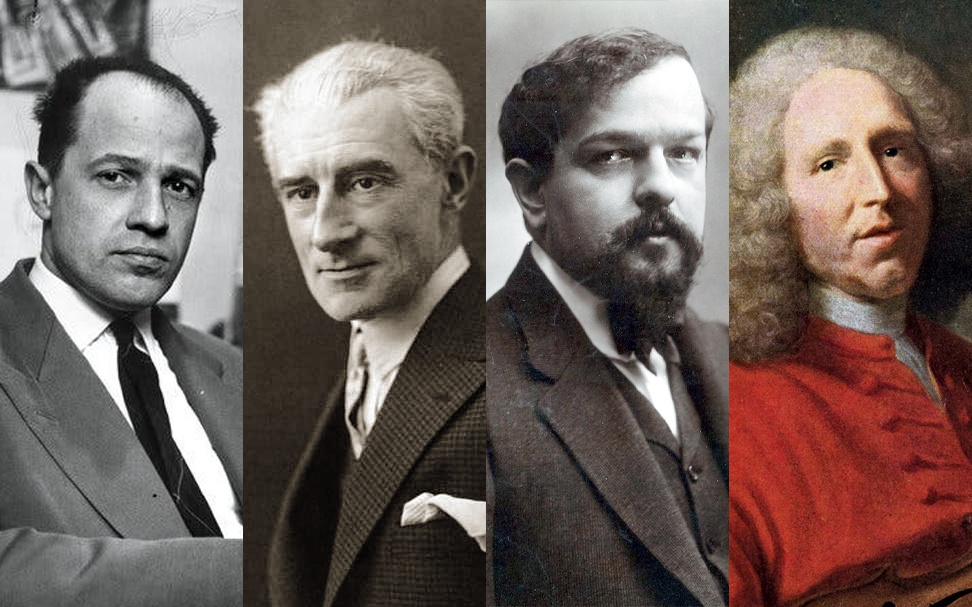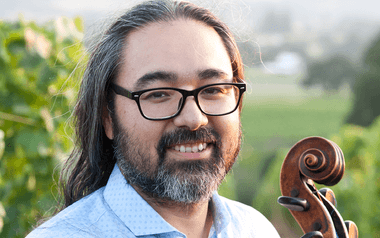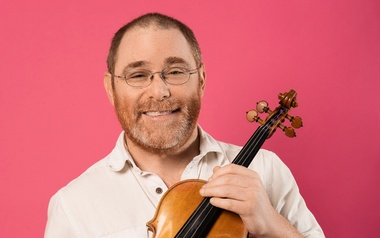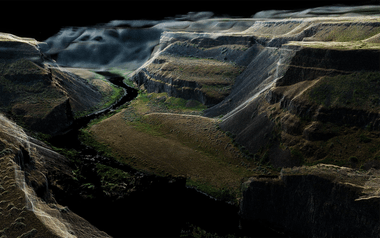Blog
DECEMBER 9, 2019
James and Emily preview Les Boréades

45th Parallel Universe offers up a ground-breaking multimedia performance featuring a survey of French masterpieces by Boulez, Ravel, Debussy, and Rameau.
Writing on the music of Ravel, Pierre Boulez considered his output to be that of “a musical organism which had lost its power of self-renewal and was ineluctably headed for its own destruction.” Hmmmmmm… interesting take, Pierre. Known for his frequent and verbose critiques of composers ranging from Shostakovich to Stravinsky (really, just about every twentieth century composer of note you can think of!), Boulez was the undisputed patriarch of the French avant-garde in the second half of the twentieth century. His music is meticulously crafted and utterly unique, demanding the attention of any avid listener or curious young composer interested in modern music. His work Mémoriale …explosante-fixe… originel for flute and 8 instruments serves as a perfect introduction to his works for the uninitiated. It is a playful, beautifully orchestrated work, which sparkles in shadow, and conjures up images of inner worlds and dark corridors of the psyche. I can’t think of a more equipped soloist than the Oregon Symphony’s principal Flautist, Martha Long, whose commanding sense of style and powerful tone will be on display as she tackles Boulez’s unique woodwind writing: incredibly virtuosic… yet requiring an almost curious nonchalance…
Click here to see Ensemble Intercontemporain’s performance of memoriale by Pierre Boulez.
Circling back to Ravel: thankfully, most of us have broader tastes than Maestro Boulez, and I’m personally excited to play the Introduction et allegro for Flute, Clarinet, Harp, and String Quartet. This ten-minute work opens with a lush and mysterious passage, which slowly unfurls to an almost symphonic scale. Ravel, as always, is a master of orchestration and color in this composition, and he manages to take listeners on a sweeping sonic journey in this staple of the chamber music repertoire.
Click here to see Omega Ensemble’s performance of Introduction et allegro by Maurice Ravel.
One composer that Boulez held in the highest regard was Claude Debussy, one of the most important figures in western music. As a century of domination by the German Romantics began to become stale at the turn of the twentieth century, Debussy helped to illuminate new paths in Western Europe’s compositional landscape. Prélude à l’après-midi d’un faune is perhaps his second most well known piece (after the ubiquitous Clair de lune), and it has become a staple of the orchestral repertoire. Our performance has an added layer of history: we’ll perform a chamber orchestra version made for the Verein für musikalische Privataufführungen (The Society for Private Musical Performances) by Benno Sachs, a pupil of Arnold Schoenberg. This arrangement and others like it had both practical and artistic value, originally allowing resource-strapped musicians, composers, and music lovers an opportunity to encounter masterworks for large orchestra that were often out of reach in post-war Vienna. Beyond making performances for smaller forces possible, this chamber orchestra arrangement (and others like it) give listeners an opportunity to hear different details found in Debussy’s stunning work. Martha Long will also have a prominent role in this performance of Debussy: the opening flute solo, one of the most famous passages for the instrument ever composed, remains as Debussy originally intended. (As a side-note, we recommend any avid fans of music history to read up on Schoenberg’s and colleagues’ efforts with the Society for Private Musical Performances, as the history of this weekly performance series is extremely fascinating.)
Click here to see Salastina Society’s performance of Prelude a l’apres-midi d’un faune by Claude Debussy.
Concluding the concert (the “main course,” if you will) is a suite from Jean-Philippe Rameau’s final opera, “Les Boréades.” The composer never had a chance to hear a complete performance during his lifetime, and the world would have to wait until 1964 to hear it, when the work was finally performed as part of a celebration to mark 200 years since the Rameau’s death. The instrumental music from the opera has taken on a life of its own in recent decades, owing to the stunning beauty found therein. I’d highly recommend taking a moment to listen to the movement titled “Entrée de Polymnie”, which has to be one of the most arrestingly beautiful creations in the French Baroque style. As a clarinetist, James is particularly happy that Rameau chose to include his instrument in the score; indeed, this is one of the earliest known uses of the instrument, which was still in its infancy during the late-baroque period.
Click here to see Les Musicians de Louvre’s performance of Entrée de Polymnie from Les Boréades by Jean-Philippe Rameau.
Emily Cole and James Shields
Don’t forget to share this post!
YOU MAY ALSO LIKE…



Lisa Interviews Cellist Leo Eguchi
Lisa interviews Leo Eguchi on his life as a performer and his upcoming solo show with 45th Parallel, UNACCOMPANIED…



Ewer, Always On My Mind
Lisa Lipton recently interviewed Greg Ewer, founder of 45th Parallel and member of the Pyxis Quartet, about the Friends of…



Anatomy of a Concert
“Check out this amazing piece by Andy Akiho!” I can’t remember who sent that text to me, though it was probably one my fellow music geek buddies…